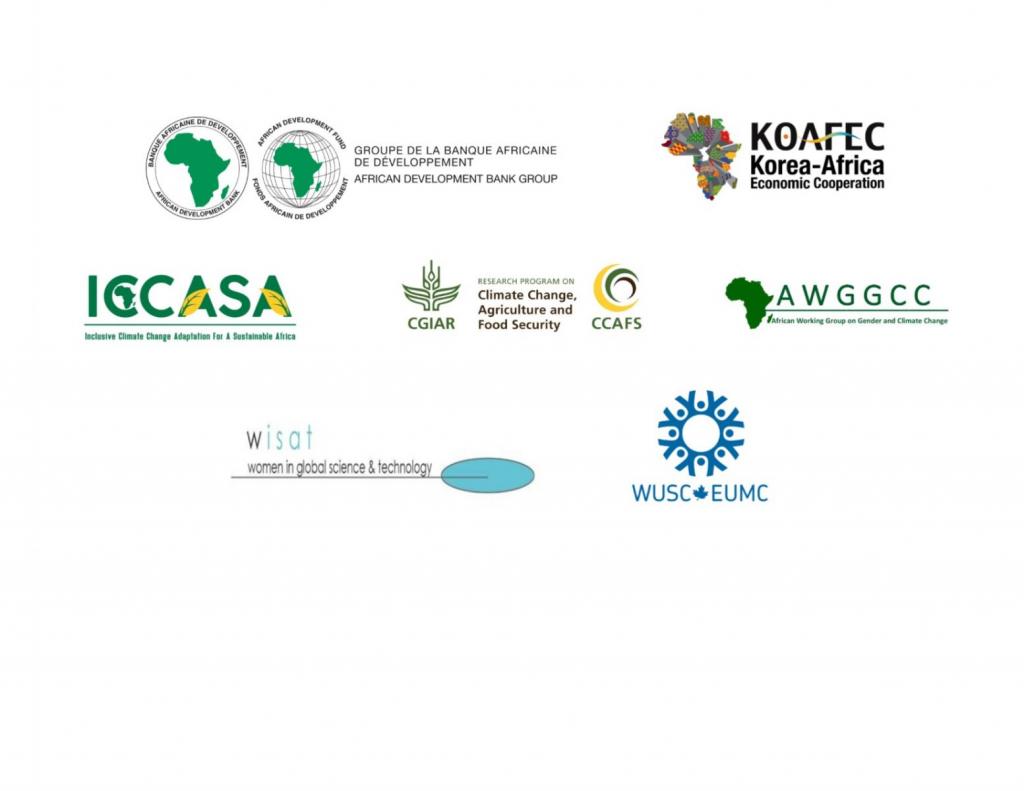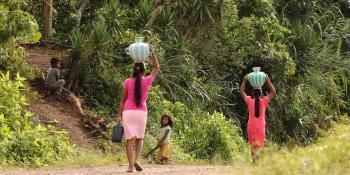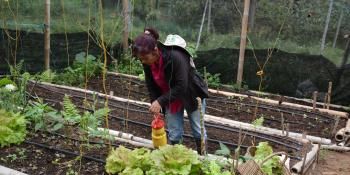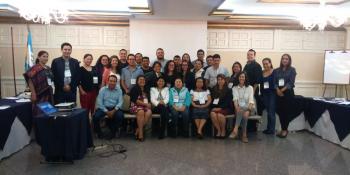Road to COP24: Gender-responsive climate-change negotiations and policy making in Africa

The Second Webinar Series for the Inclusive Climate Change Adaptation for a Sustainable Africa project will focus on gender-responsive implementation of the Paris Agreement and climate change policy in Africa.
The Twenty Fourth Conference of Parties (COP24) promises to be another turning point for countries as they agree on and adopt the implementation guidelines (referred to as the Paris Rulebook) of the Paris Agreement. COP24 will be held from 3 to 14 December 2018 in Katowice, Poland. Discussions on the inclusion of gender equality in the Paris Rulebook are gaining momentum, especially following adoption of the Gender Action Plan at COP23 in Bonn, Germany. This is most evident in critical international commitments such as National Adaptation Plans (NAPs), Nationally Determined Contributions (NDCs), and United Nations Framework Convention on Climate Change (UNFCCC) negotiations streams such as adaptation, finance, and technology transfer. The African Group of Negotiators (AGN) is actively engaged in supporting political leaders to make pledges for equitable implementation guidelines of the Paris Agreement for an inclusive Africa.
Africa, which constitutes 13 percent of the global population, contributes the lowest amount of greenhouse gas (GHG) emissions, yet bears the brunt of climate change. Men, women, and youth have different vulnerabilities to climate change due to existing inequalities such as their role and position in society, access to resources, and power relations. It is projected that by 2020, yields from rain-fed agriculture in some countries could be reduced by up to 50 percent. The resulting negative consequences will differ based on region, age, and gender. Currently, there is insufficient knowledge regarding gender-differentiated impacts of climate change in Africa. In areas where such data exists, it tends to be on a small-scale, at the project level. As a result, policy and decision-makers are not aware of the need for gender differentiated policies as well as adaptation and mitigation actions. It is therefore important to understand the interrelations between climate change and gender to design effective climate change adaptation polices and initiatives in Africa.
This is the Second Webinar Series for the Inclusive Climate Change Adaptation for a Sustainable Africa (ICCASA) project. This webinar will focus on gender-responsive implementation of the Paris Agreement and national climate change policymaking in Africa. Participants will have an opportunity to engage speakers via the online platform. The objective of the webinar is to ensure that participants understand gender-responsive climate change negotiations and policymaking in Africa. As well, in the weeks leading up to the webinar, the African Development Bank (AfDB), the Korea-Africa Economic Cooperation Trust Fund (KOAFEC), the CGIAR Research Program on Climate Change, Agriculture and Food Security (CCAFS), the African Working Group on Gender and Climate Change (AWGGCC), and World University Service of Canada (WUSC) will host an online discussion on the Climate and Agriculture Network for Africa (CANA) platform.
The presentations are as follows:
- Gender-Responsive Solutions for Implementation of the Paris Agreement – the AfDB’s Approach – Dr. Balgis Osman-Elasha, Climate Change Expert, AfDB, will explain how the Bank intends to engage national governments in implementing a gender responsive Paris Agreement and provide examples of climate resilient solutions necessary for inclusive and sustainable development for Africa.
- Implications of the 3-year Gender Action Plan (GAP) in Africa – Hon. Winifred Masiko, AGN Gender Negotiator, will provide an overview of a) the implications of the three year gender action plan (GAP) in Africa, specifically identifying the challenges and opportunities of the GAP; b) provide guidance on how climate change action can contribute to and strengthen gender equality in Africa and; c) discuss how Africa will position itself on gender and climate change issues in preparation for COP 24.
- Ensuring Gender-Responsive Climate Change Adaptation in Africa – Ms. Salem Kidane, AGN Legal Coordinator, will discuss gender-responsive negotiation and design of new adaptation initiatives. Specifically, she will discuss a gender responsive adaptation framework that can be used to monitor and evaluate concrete gender-responsive approaches and lead to greater adaptation impact in Africa.
- Integrating Gender into Agricultural Negotiations and Development in Africa – Dr. Manyewu Mutamba, AGN Agriculture Negotiator, will discuss the important role of mainstreaming gender the historic Koronivia Joint Work on Agriculture (KJWA) decision, adopted at COP23, and overall agricultural development in Africa. He will discuss how Africa intends to integrate gender into its SBSTA/SBI49 submission on “Modalities for implementation of the outcomes of the five in-session workshops on issues related to agriculture and other future topics that may arise from this work.”
Click here for more information and to register for the webinar.
Click here for more information about the upcoming "Gender-responsive climate-change negotiations and policy making in Africa" online discussion which will be held on 5–23 November.
The series is funded by the African Development Bank Group (AfDB) and the Korea-Africa Economic Cooperation Trust Fund (KOAFEC).



